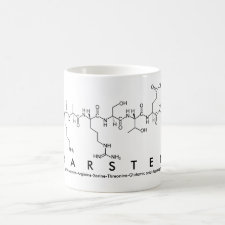
Authors: Dmitrienko EV, Bulushev RD, Haupt K, Kosolobov SS, Latyshev AV, Pyshnaya IA, Pyshnyi DV
Article Title: A simple approach to prepare molecularly imprinted polymers from nylon-6.
Publication date: 2013
Journal: Journal of Molecular Recognition
Volume: 26
Issue: (8)
Page numbers: 368-375.
DOI: 10.1002/jmr.2281
Abstract: A convenient and simple approach for the preparation of molecularly imprinted polymers (MIPs) based on polyamide (nylon-6) was developed. The polymer matrix formation occurred during the transition of nylon from dissolved to solid state in the presence of template molecules in the initial solution. 2,2,2-Trifluoroethanol (TFE) was chosen as a main solvent for the polyamide. It provides a high solubility of nylon and does not significantly change the structure of biopolymers. The alteration of the polymer matrix structure after the addition of different types of porogens in the nylon/TFE solution was investigated. The structured polymers in the form of films and microparticles were prepared in the chosen optimal conditions. Different model biomolecular templates (of low- and high-molecular weight) were used for the preparation of MIPs, which were shown to specifically recognize these molecules upon binding experiments. The binding of the template molecules to MIPs was monitored using spectrophotometric, radioisotopic, or fluorometric detection. The selectivity coefficients of the MIPs were estimated to be 1.4-4.6 depending on the type of templates and conditions of the polymer matrix formation. Copyright © 2013 John Wiley & Sons, Ltd
Template and target information: adenosine triphosphate, ATPprotein, bovine serum albumin, BSA, ovalbumin, OA, human hemoglobin, Hb
Author keywords: nylon-6, 2,2,2-trifluoroethanol, porogen, molecularly imprinted polymer, molecular recognition, biomolecules



Join the Society for Molecular Imprinting

New items RSS feed
Sign-up for e-mail updates:
Choose between receiving an occasional newsletter or more frequent e-mail alerts.
Click here to go to the sign-up page.
Is your name elemental or peptidic? Enter your name and find out by clicking either of the buttons below!
Other products you may like:
 MIPdatabase
MIPdatabase









